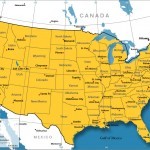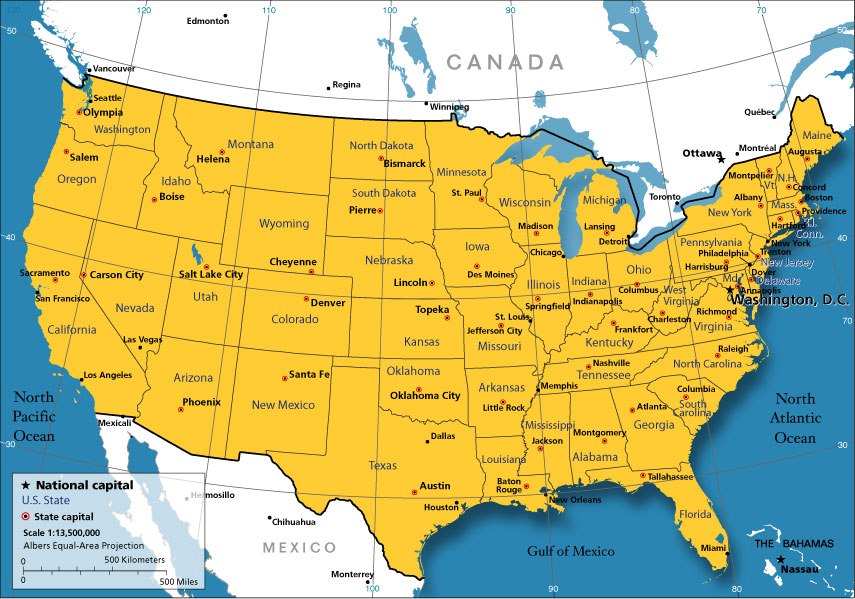The Resource Conservation and Recovery Act (RCRA), signed into law in 1976, tasked the US Environmental Protection Agency (EPA) to draft and enforce the regulations that form the Federal program based on the Act. RCRA authorized EPA to delegate the primary responsibility of implementing the hazardous waste program to States and Territories with approved programs. To achieve approved program status (aka: RCRA Authorization), a States’ program must be substantially equivalent to, consistent with, and no less stringent than the Federal program.

What this means is that a State with a business-friendly agenda can’t take the EPA regulations and water them down as a gift to hazardous waste generators within their borders. A more common occurrence is a State will go beyond the Federal program to be more strict and more broad in its regulation of hazardous waste. Examples of this include:
- Annual hazardous waste reports instead of biennial.
- State-specific forms required for the Notification of Regulated Waste Activity.
- State-specific listed and characteristic hazardous waste.
- Containment requirements for hazardous waste Central Accumulation Areas at un-permitted hazardous waste generators – EPA requires containment for permitted facilities only.
- Time limits for accumulation of hazardous waste in Satellite Accumulation Areas.
- More…
So, does your State have RCRA Authorization? Unless your located in Iowa or Alaska, the answer is yes. These two States lack authorization for a State RCRA program and defer to their EPA Regional authority (Region 7 & 10, respectively) for enforcement of the Federal regulations within their state. In the remaining 48 states the primary RCRA enforcement authority is that State’s environmental compliance agency (they go by many names).
So that’s the 50 states, but what about the District of Columbia, tribal lands, and the Territories? The status of those entities are as follows:
| Authorized RCRA Program | Lacks RCRA Authorization |
| District of Columbia | Puerto Rico |
| Guam | The Virgin Islands |
| American Samoa | |
| Commonwealth of the Northern Mariana Islands | |
| Tribal Lands (unless the State specifically receives authorization for them within its borders) |
Note: sometimes American Samoa and the Commonwealth of the Northern Mariana Islands are referred to as one entity, the Trust Territories.
FAQs:
Q: My business is in a state with RCRA authorization, does that mean I don’t have to obey EPA regulations?
A: No. What it does mean is that the regulations of your state are your first source for determining compliance with RCRA. Often a state will incorporate EPA regulations into its own unchanged or simply refer you to the Federal regulations to determine compliance.
Q: My business is in a state with RCRA Authorization, does this mean I will never be inspected by the Feds?
A: No. Despite allowing a state with an authorized RCRA program to take the lead in enforcing its own regulations, the EPA maintains its right to conduct inspections in any state. If inspected by the EPA, compliance with your state regulations will still be required.
Q: The Federal hazardous waste regulations recently changed and I’m unsure of the status of the regulations of my state, what do I do?
A: You must first determine if your state has an authorized hazardous waste program. If it does, than it is likely, though not certain, that the regulations will not be immediately effective in your state. Instead your state must decide if it will adopt the new Federal regulations, reject them, or come up with its own version that is at least as strict and as broad as the Federal rule. If your state lacks RCRA authorization, then the rule will be effective in your state as soon as it is effective in the Federal regulations.
Q: My state has RCRA authorization and so do the neighboring states, must I comply with the other state’s regulations in addition to my own?
A: You do if you have business in that state. For example, you might generate a waste that is determined to be non-hazardous by the regulations of your state, but it is possible that another state – based on its own regulations – may determine the waste to be hazardous. If you intend to ship your non-hazardous waste out-of-state for disposal you will have to consider the regulations of that state as well as your own.
If you haven’t already, take the time to learn more about your State environmental agency and your state-specific regulations; three good sources are:
- EPA RCRA Authorization homepage
- EPA Summary of State Programs
- RCRA/Hazardous Waste Resource Locator provided by ENVCAP

My Onsite Training is the way to go it you want training focused on the regulations of your state and how they apply to your operations. Site specific training is also available through a Webinar.
Daniels Training Services 815.821.1550/Info@DanielsTraining.com/https://danielstraining.com/ |
Please contact me for a free consultation to determine which regulations apply to your operations and what training is right for you.

